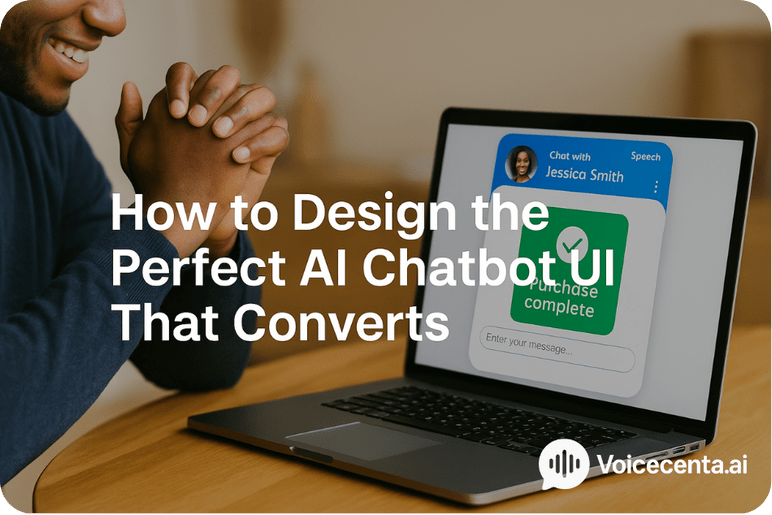Smart AI Agent: How It Differs from a Chatbot
What truly separates a rules-based chatbot from an adaptive, autonomous AI agent—and when to choose each for your UK business.
- Published: 3 June 2025
- 7 min read

Understanding the Distinction: Smart AI Agent vs Chatbot
In an era where digital experiences define brand value, UK businesses are increasingly embracing automation to enhance efficiency and customer satisfaction. However, there’s often confusion around the difference between a traditional chatbot and an AI agent. Both offer conversational interfaces, but their underlying technology, capability, and impact vary dramatically. Understanding the key differences can help organisations invest wisely and gain a competitive advantage in the marketplace.
What Is a Chatbot?
Chatbots have been widely adopted across websites, social platforms, and customer service portals. Essentially, a chatbot is a rules-based programme designed to simulate a basic conversation with users. Most chatbots follow predefined scripts or decision trees, making them ideal for simple, repetitive tasks like greeting visitors, offering FAQs, or processing basic form submissions.
Despite their popularity, chatbots often come with limitations. They can appear robotic, struggle with nuanced conversations, and typically lack memory or learning capabilities. This is where the shift towards more intelligent solutions becomes essential—particularly for UK businesses prioritising personalised customer journeys and multi-platform support.
Introducing the Smart Agent
A smart AI agent represents the next evolutionary leap in conversational technology. Unlike traditional bots, AI agents use machine learning, natural language processing (NLP), and real-time data analysis to understand user intent, context, and sentiment. They can recall previous interactions, adjust their responses dynamically, and learn from every conversation—becoming more effective over time.
In the UK, many forward-thinking organisations are deploying these agents as core digital staff members. Whether it’s for handling support tickets, managing CRM interactions, or providing live voice-based conversations, a smart AI agent behaves more like an employee than a script-driven program.
Smart AI Agent vs Chatbot: Core Differences
- Learning & Adaptation
Chatbot: No learning.
Smart Agent: Improves continuously using behaviour patterns and context. - Autonomy
Chatbot: Needs input for each action.
Smart Agent: Acts independently within guardrails—sends reminders, escalates, triggers workflows (true autonomous AI systems). - Context Awareness
Chatbot: Treats messages in isolation.
Smart Agent: Remembers history, tone, and state for consistent, human-style engagement. - Multi-Tasking
Chatbot: Single intent.
Smart Agent: Books, checks availability, confirms, and follows-up—without breaking flow. - Platform Flexibility
Chatbot: Often tied to one channel.
Smart Agent: Runs across WhatsApp, web chat, voice, and more.
Understanding Chatbot Limitations
To fully appreciate the benefits of intelligent AI, it's important to address common chatbot limitations. Traditional bots often operate on rigid parameters. If a user phrases a query differently than expected, the chatbot may respond with “Sorry, I didn’t understand that,” or worse, loop endlessly with irrelevant answers.
This not only frustrates users but increases the burden on human support staff. Moreover, chatbots typically lack long-term memory, so even frequent customers are treated as new each time. These flaws highlight the need for more intelligent alternatives—ones that UK companies are now actively exploring.
Intelligent Virtual Assistants in Practice
The term intelligent virtual assistant (IVA) is often used interchangeably with smart AI agents. These assistants serve as advanced digital interfaces for businesses, capable of handling intricate workflows. In healthcare, they help patients schedule appointments, access test results, and understand treatment options. In banking, they can provide real-time account information, initiate transactions, and verify identity—all securely and autonomously.
In fact, several NHS trusts and UK-based fintech companies have already adopted IVAs to reduce pressure on frontline staff and improve service quality. Their ability to operate 24/7, respond in multiple languages, and integrate with internal systems makes them invaluable assets across sectors.
Case Study: A Smart AI Agent in UK E-Commerce
Consider a UK-based e-commerce brand that implemented a smart AI agent to improve customer support. The agent, trained on historical support data and integrated with their Shopify backend, handled over 70% of incoming queries during peak season. It offered proactive order updates, processed returns, and even assisted customers in finding products based on browsing behaviour.
Post-implementation, the company recorded a 32% reduction in support costs and a 25% increase in repeat purchases. Customers described the experience as “more personal” and “frustration-free” compared to prior chatbot systems.
Why Businesses Are Moving Towards Autonomous AI Systems
The modern consumer demands speed, personalisation, and accuracy. Autonomous AI systems like smart agents allow businesses to meet these expectations without inflating operational costs. For decision-makers, this means fewer escalations, richer insights, and better ROI on customer experience tools.
Moreover, smart AI agents can support internal operations. From HR onboarding to managing IT requests, these agents become collaborative digital colleagues. They reduce manual workflows, ensure data consistency, and help maintain compliance—a growing concern under UK data protection laws.
AI Agent vs Chatbot: Which Is Right for You?
Choosing between an AI agent vs chatbot depends on your business needs. If your customer journey is simple and predictable, a chatbot may suffice. But if your operations demand contextual awareness, real-time learning, and autonomous action, investing in a smart AI agent is the clear winner.
For SMEs, modern AI platforms now offer affordable and scalable agent solutions—enabling smaller teams to punch above their weight in delivering quality customer experiences. Many UK providers also offer local data hosting and GDPR-compliant architectures for safe deployment.
Conclusion: A Smarter Future for UK Businesses
The difference between a chatbot and a smart AI agent isn't just technical—it’s strategic. Where chatbots offer convenience, AI agents offer transformation. They empower businesses to rethink service delivery, internal workflows, and customer engagement from the ground up.
As UK businesses continue to digitise, adopting intelligent virtual assistants and smart AI agents will no longer be a luxury but a necessity. By embracing these technologies now, forward-thinking organisations position themselves for long-term growth and relevance.
Explore our related post on Best Practices for AI Chatbot Success to further understand implementation strategies.
Thinking of upgrading from chatbot to smart AI agent? Let our team help you build an intelligent, always-on solution that learns your business inside and out.
Ready to put a smart AI agent to work?
Book a quick demo and see how agentic AI handles real workloads across web, voice, and WhatsApp.
Further Reading
- How to Design the Perfect AI Chatbot UI That Converts
- AI Sales Agents: 5 Ways They Boost Sales Conversions Automatically
- AI Chatbots: How They Reduce Customer Service Costs
- AI Agents for Customer Support: Deliver 24/7 Service
- How AI Agents Improve Customer Retention and Loyalty
- AI Chatbot Benefits UK — Top Benefits for SMEs in 2025
- Best AI Chatbot for Small Business UK: 2025 Buyer’s Guide
Ready to Automate Your Business?
Book a free call and see how a fully-trained AI chatbot can save you hours every week — no tech skills required.
Get Your Free Demo